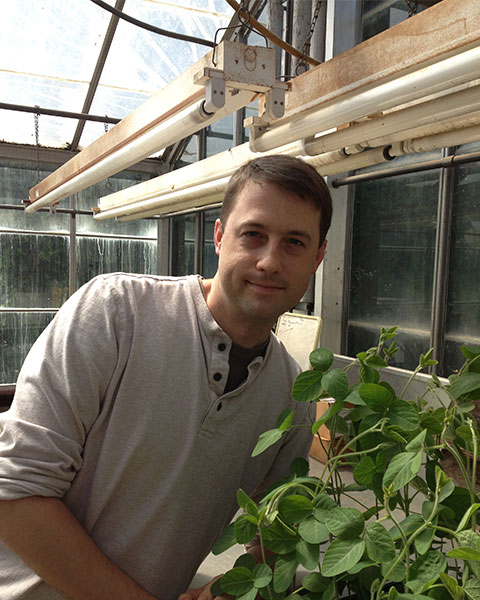Student 10-Minute Presentation
Physiology, Biochemistry, and Toxicology
Student
Student Competition
Grad 10-min Competition: PBT, Genetics - Functional and Molecular
Investigating a role for piRNA-associated PIWI genes in overcoming host-plant resistance in the soybean aphid, Aphis glycines
Monday, November 11, 2024
9:12 AM - 9:24 AM MST
Location: Phoenix Convention Center, 124 AB, PCC
- AH
Angel Haller
Graduate Student
The Ohio State University
Wooster, Ohio 
Andy Michel
Entomology professor
The Ohio State University
Wooster, Ohio
Presenting Author(s)
Co-Author(s)
Natural host plant resistance mechanisms are a sustainable solution to combat insect outbreaks but are challenged due to insect adaptations. Some insects have acquired adaptive traits to overcome plant resistance through epigenetic mechanisms, such as non-coding RNA . piRNA are specific, non-coding RNAs that interact with piwi proteins to perform a wide range of diverse epigenetic functions, particularly in insects. Previous investigation into aphid piwis suggested expansions in the number of piwi genes compared to other model insects, which may suggest additional or specific roles among aphid species. We investigated a role for piwis in the soybean aphid (Aphis glycines) to overcome host plant resistance through sequence characterization and differential gene expression. To characterize piwi gene evolution throughout the aphid family, we compared soybean aphid piwis to known and predicted piwis from other aphids with complete proteome sequences. Our data were consistent with 3 piwi orthologous groupings, as well as taxa specific gene expansions, ranging from 17 to 3 gene copies per species. To evaluate a potential role of piwis in overcoming host plant resistance, we measured their gene expression in soybean aphids that can survive (virulent) and not survive (avirulent) on aphid-resistant plants. We found that virulent soybean aphids have significantly higher expression of two piwi genes (Agl1.1 and Agl1.3) compared to the avirulent biotype. These data suggest that gene regulatory mechanisms related to the piwi pathway, potentially including piRNAs, are important in aphid systems and may enable adaptation to host-plant resistance.

.png)

